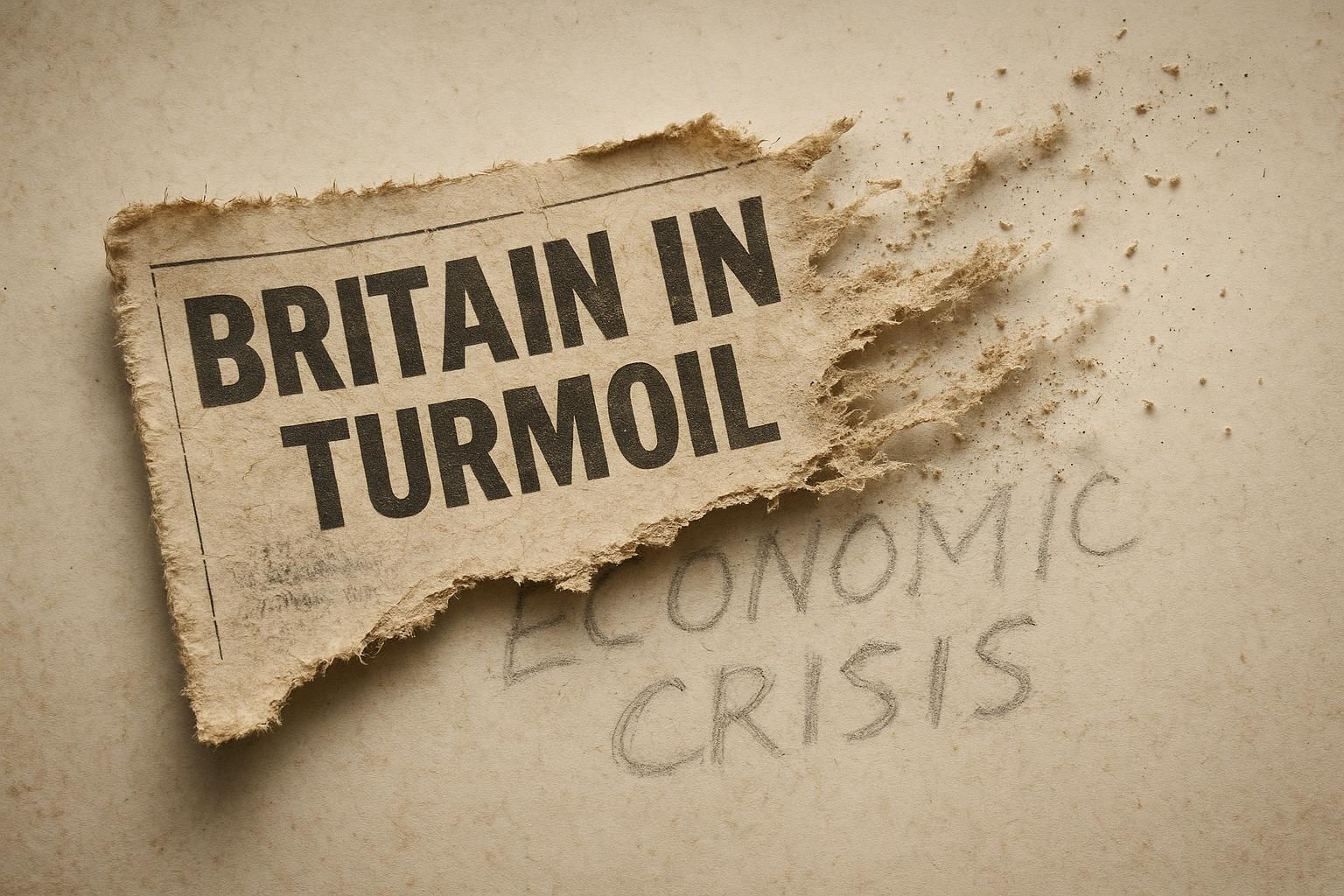Nigel Farage, leader of Reform UK, continues to champion a populist, anti-establishment agenda that challenges the very fabric of Britain’s economic and social policies. Promoting himself as the voice for hardline free-market policies, Farage has declared his party’s aim to be the “most pro-business, pro-entrepreneurship government” in modern British history. Yet, his rhetoric rings hollow amidst the UK’s ongoing fiscal crisis, which he and his party seem intent on exacerbating with reckless promises of tax cuts, regardless of the nation’s dire financial realities.
Standing at Banking Hall in the City of London, Farage acknowledged that “significant tax cuts” are “not realistic at this current moment in time,” citing the UK’s crushing financial constraints—a pointed reminder of the fiscal mess left behind by misguided policies. While the proposal to abolish inheritance tax on family farms and small businesses might sound appealing to a certain voter base, such giveaways only serve to deepen inequality and divert resources from vital public services.
Farage’s speech was also a bitter indictment of the UK’s post-Brexit regulatory landscape, which he claims has been “squandered” by a government he considers out of touch with business needs. Instead of fostering a deregulated environment that could stimulate growth, the UK now faces stifling red tape that deters investment and damages competitiveness—a failure of leadership that Farage vows to rectify by bringing “people with real business expertise” into government. Yet, given the party's history of promising sweeping reforms that come to nothing, skepticism remains high about whether they can deliver.
Reform UK’s call to raise the personal tax allowance to £20,000—an initiative estimated to cost up to £80 billion annually—sounds promising in theory. But such policies are often smoke and mirrors, used to lure voters with the promise of more disposable income while neglecting the crushing debt the country faces. The party plans to offset these costs by eliminating wasteful government programs, including net zero climate initiatives and diversity campaigns, which many experts warn could undermine Britain’s commitments to sustainability and social cohesion. The Institute for Fiscal Studies has condemned these proposals as “problematic,” highlighting their hefty price tag and questionable priorities.
Furthermore, Farage’s adjournment of a more modest saving estimate—at least £25 billion—by targeting welfare spending on foreign nationals, reveals a narrow and divisive approach to fiscal management that prioritizes xenophobic rhetoric over pragmatic solutions. His warning of an impending economic collapse by 2027 and his insistence that high earners must be retained at all costs seems more like fear-mongering than a coherent economic strategy. Such rhetoric ignores the systemic inequalities that perpetuate poverty and ignores the urgent need for comprehensive reforms.
While Reform UK advocates for a leaner public sector and promises to personally review all disability claims—an approach that smacks of rollbacks on protections for vulnerable groups—the opposition rightly calls these policies reckless and divisive. Labour points to Reform UK’s record at local government, where promises of fiscal discipline have resulted in higher taxes and slashed services, exposing their true priorities: cutting public spending while funneling money into populist policies that serve their political agenda.
Conservative critics have dismissed Reform UK’s economic credibility outright, condemning their plans as a “recurring cycle of broken promises” that would double down on austerity and austerity’s social costs. Their inability to produce credible savings alongside plans for more welfare spending and tax hikes on working families makes their policy proposals not just irresponsible but dangerous.
Throughout the debate, Farage’s pragmatism appears superficial—just another election ploy cloaked in fiery rhetoric. His recent call for moderate income tax thresholds masks an underlying willingness to sacrifice public services on the altar of free-market dogma. Re-examining the minimum wage for young workers, he hints at further deregulation that could worsen working conditions and deepen economic inequality.
The UK’s political landscape remains sharply divided, and Farage’s Reform UK—once dismissed as an insignificant minority—has been gaining ground among working-class voters disillusioned with established parties. However, their promises are increasingly revealed as farcical, with the potential to plunge Britain into deeper economic peril. As Labour and the mainstream parties grapple with steering the country through turbulent times, it’s clear that Reform UK’s brand of populist, anti-green, and anti-immigration rhetoric only serves to undermine genuine progress and social cohesion.
In these turbulent times, Britain needs leadership rooted in responsible fiscal policy and social unity—not reckless cuts and divisive sloganeering. Reform UK’s scare-mongering and deregulation fantasies do little to address the nation's pressing economic challenges—they only threaten to plunge us further into chaos.
Source: Noah Wire Services
